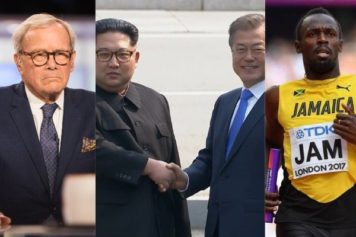If North Korea continues to develop its nuclear capabilities and long-range ballistic missile, eventually the rogue nation could reach the Unites States with a nuclear weapon, the Pentagon said in a report to Congress yesterday.
The report, which Congress now requires the Pentagon to issue every year, referred to North Korea’s Taepodong-2 missile, which could reach parts of the United States carrying a nuclear payload if configured as an intercontinental ballistic missile.
The report said North Korea’s launch of a multi-stage rocket that delivered a satellite into orbit in December “contributes heavily” to its development of long-range ballistic missile capability.
The nation also accomplished a nuclear detonation in February and is capable of conducting “additional nuclear tests at any time,” the report said.
“These advances in ballistic-missile delivery systems, coupled with developments in nuclear technology … are in line with North Korea’s stated objective of being able to strike the U.S. homeland,” the report said. “North Korea will move closer to this goal, as well as increase the threat it poses to U.S. forces and allies in the region, if it continues testing and devoting scarce regime resources to these programs.”
North Korea is a security challenge for the U.S. because of its attempts to develop nuclear arms and missiles, its history of selling weapons technology to other countries, and its willingness to “undertake provocative and destabilizing behavior.”
Earlier this month, North Korea also said it wouldn’t make any moves toward abandoning its nuclear ambitions until the removal of nuclear weapons that it claims Washington has deployed in the region.
“Dialogue and war cannot coexist,” the North’s National Defense Commission said in the statement carried by the official KCNA news agency. “If the United States and the puppet South have the slightest desire to avoid the sledge-hammer blow of our army and the people … and truly wish dialogue and negotiations, they must make the resolute decision.”
The U.S. has said in the past that it would begin talks with North Korea only if it abandoned its nuclear program — a declaration repeated by Secretary of State John Kerry in testimony before the House Foreign Affairs Committee.
“We’re not going to reward them, and come to the table and get into some food deal, without some pretty ironclad concept on how we’re going forward on the denuclearization,” Kerry said.
In the meantime, the U.S. said yesterday that North Korea should immediately release an American citizen, Kenneth Bae, who was sentenced this week to 15 years of hard labor. State Department spokesman Patrick Ventrell said the Obama administration wanted the convicted American, who was sentenced on Tuesday on charges of committing hostile acts, to be granted “amnesty and immediate release.”
The administration had “longstanding concerns about the lack of transparency and due process in the North Korean legal system,” Ventrell said.
The statement seemed to mean the administration was not prepared right now to seek Bae’s release through a high-profile mission to North Korea, as it has done twice in the past when Americans were held by North Korea to gain concessions from the United States.
Asked if a mission to free Bae were an option, Ventrell said, “I’m not aware one way or another.”
But according to analysts, an American diplomatic mission to secure Bae’s release might be used by leader Kim Jong Un as a sign of weakness, giving him a chance to inflate his image as a hardline anti-American strategist. However, in taking the tougher approach, the Obama administration is assuming the risk that an American citizen would be incarcerated indefinitely.


